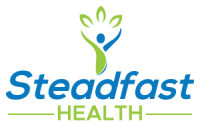Herbs are the green parts of the plant like the leaves or stems. They are either eaten fresh or dried and added to foods or drinks to provide flavour. Herbs are used in various home remedies to ease a particular symptom(s) as they possess medicinal and aromatic properties.
Are you confused between herbs or spices? Well, don’t be because they aren’t alike. They are distinct from each other because of where they originate from the plant. Spices are mostly used in the dried form and are derived from dried seeds, fruits, bark, twigs, or the roots of the plants.
What are the essential nutrients present in herbs?
It is essential to note that dried herbs have a high amount of antioxidants but lower levels of vitamins and minerals as compared to fresh herbs. Herbs have antioxidant and inflammatory properties while a few are also known to be anti-cancerous.
Let’s check some of the healthy herbs that can be added to the food while cooking or to drinks to reap multiple benefits.
Basil
A common household name, Basil or Tulsi is not only a sacred plant but also possesses a high nutrient value. Holy basil is known to contain antibacterial and antiviral properties that benefit in a variety of ways to ease everyday issues.
How to consume Holy basil daily?
Holy basil can be used in numerous ways:
- Added to teas
- In sauces like pesto sauce
- Sandwiches
- Tulsi leaves paste can be applied topically to reduce or remove acne or pimples
- Used in salads
Did you know?
Holy basil can be used to fight infections and help increase immune cells in the body that help build a stronger immunity system.
Coriander
The green leafy herb has been a part of many international dishes. Many recipes across India, the Middle East and Asia use this healthy herb while cooking or as a garnish.
Essential nutrients in coriander:
- It provides antioxidants
- It contains Vitamin K and Vitamin A, Vitamin C, choline and beta-carotene
- It has anti-inflammatory and antiseptic properties
- It provides dietary fibre
- It has minerals like potassium and also calcium, phosphorus, and magnesium
How to use coriander in cooking?
- Make coriander chutney
- Use coriander leaves to garnish dishes or soups
- Coriander fritters
- Add to salads
Did you know?
Coriander can support your health in various ways. Consumption of coriander can assist in lowering your blood sugar levels, ward-off infections, boost heart, skin, brain, and gut health. Furthermore, it can also assist in managing diabetes symptoms, and treating liver dysfunction.
Oregano
Not only does it add the perfect flavour to your pizzas, oregano is a healthy herb that has abundant nutrients. It’s packed with nutrients like vitamins A, C, E and K, folate, iron, vitamin B6, iron, calcium, dietary fibre and potassium.
Oregano also contains essential properties like anti-microbial, anti-inflammatory and cancer-fighting.
How to add oregano herb to your diet?
Sprinkle dried oregano into soups, stews, salad dressings, sauces, or add to tomato-centric recipes.
Did you know?
Oregano is beneficial in reducing inflammation while protecting against viral infections and bacteria.
Rosemary
This herb is used in both foods and for medicinal purposes. The active ingredient in rosemary, known as rosmarinic acid, is helpful to reduce allergy symptoms and nasal congestion. A good source of antioxidants, rosemary is known to boost the immune system and help in improving blood circulation. Furthermore, it can help in improving digestion, enhancing memory, and concentration.
How to include rosemary in cooking?
- Use as a garnish for chicken recipes
- Can be used to make rosemary tea
- Add to roasted vegetables
- Use dried rosemary in pasta
- Make a rosemary butter spread for toast/bread
- Can add the sprigs of rosemary to a lemonade
*Precaution: Pregnant women must not consume this as it stimulates menstrual flow.
Did you know?
The presence of phytochemicals in rosemary can boost eye health and even protect the skin from the damage caused by the sin.
Dill
Dill or commonly known as ‘soya’ or ‘soa’ is a good source of essential vitamins and minerals, manganese, folate, iron, Vitamin C, A and is very low in calories. It is also rich in antioxidants.
How can you include dill in your diet?
This herb can be used to add flavour to the foods and can be consumed in a variety of ways:
- Used in salads or soups
- Add to roasted vegetables
- Mix in yoghurt
- Add in baked goods
- Salad dressings
Did You Know?
Dill help is beneficial in lowering blood sugar levels.
The views and opinions expressed, and assumptions & analysis presented in this content piece are those of the author(s) and do not necessarily reflect the official policy or position of any other agency, organization, employer or company. The information, including but not limited to, text, graphics, images and other material contained on this website are for informational purposes only. The purpose of this website is to promote broad consumer understanding and knowledge of various health topics. It is not intended to be a substitute for professional medical advice, diagnosis or treatment. Always seek the advice of your physician or other qualified health care provider with any questions you may have regarding a medical condition or treatment and before undertaking a new health care regimen, and never disregard professional medical advice or delay in seeking it because of something you have read on this website.




